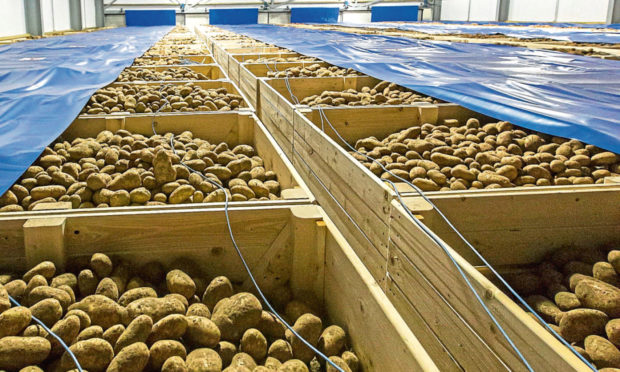The UK Government has applied to the EU for equivalence status for seed potatoes in a bid to resolve the barrier imposed on exports by the Brexit trade deal.
Environment Secretary George Eustice told the Oxford Farming Conference the application had been made at the first available opportunity at the end of the transition period.
“The data and the evidence required to support it has been in place for months and we will obviously be encouraging the EU to expedite that application,” he said.
“In the past, under similar provisions, Canada, for example, has been able to sell seed potatoes to the EU, so we are working to get a solution to this.”
Mr Eustice also reiterated the government’s position that there would be no tit-for-tat ban on imports of seed produced in the EU for at least six months to avoid denying British farmers access to varieties required to fulfil contracts.
In their addresses to the conference, the UK’s four farming ministers outlined different priorities and philosophies for their nations and while they indicated they could still work together, Defra’s launch of a consultation on adopting gene editing technology has ruffled feathers in Holyrood.
Rural Affairs Minister Ben Macpherson made it clear Scotland’s policy on the cultivation of GM crops had not changed.
“We will be maintaining Scotland’s GM-free crop status, in line with our commitment to stay aligned to EU regulations and standards, and have made our views known to UK ministers,” he said.
“The UK Government’s decision to consult on making changes to the definition, which would differ to Scotland’s approach, is an example of why we believe the UK Internal Market Act removes our competency to make decisions on the marketing of products in a devolved area.
“While any definition change outlined in their consultation would not in legal terms extend to Scotland, the UK Internal Market Act would force Scotland to accept the marketing, sale and free circulation of products in Scotland which do not meet the standards set out in the Scottish regulations.”
Meanwhile, James Bailey, executive director at Waitrose, said: “If our customers don’t buy it (GM products), there’s no point in us getting in the market of procuring it.”
